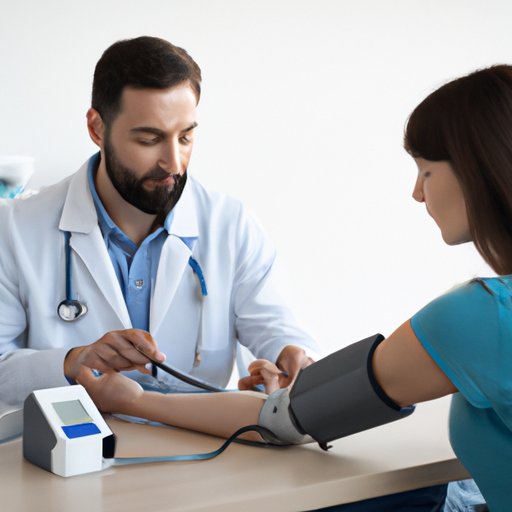
Introduction
High blood pressure affects millions of people worldwide and can lead to serious health problems. Medications are a common tool used to manage blood pressure and reduce the risk of related conditions. This article aims to explore when it is appropriate to take blood pressure medicine, the benefits and risks, and the importance of working with a doctor to manage this condition effectively.
The Benefits of Blood Pressure Medicine: When Is It Time to Start?
High blood pressure, or hypertension, increases the risk of heart attack, stroke, and other health problems. Medications can help reduce blood pressure levels and improve overall health. Some factors to consider include the severity of hypertension, other health conditions, and the likelihood of developing future health problems without medication.
Understanding Your Numbers: The Importance of Monitoring Blood Pressure
Knowing your blood pressure numbers is essential to managing hypertension. High blood pressure is usually defined as a reading of 130/80 mmHg or higher. Patients are encouraged to monitor their blood pressure at home and at medical appointments regularly. Consistent monitoring can help identify any spikes or dips in blood pressure levels.
Balancing Risks and Benefits: The Decision to Start Blood Pressure Medication
Blood pressure medications carry risks and benefits, and patients will need to weigh them up before starting treatment. Risks of medication include possible side effects, while benefits include better health outcomes. Other factors to consider include cost, dosage, and lifestyle changes that must accompany medication for optimal results.
Signs and Symptoms of High Blood Pressure: When Is Medication Necessary?
High blood pressure can often be present with no noticeable symptoms. However, some early signs can be detected, such as headaches, fatigue, and shortness of breath. If left untreated, certain organs such as the heart and kidneys can be affected, leading to potential complications. If blood pressure is consistently high, blood pressure medication may be necessary to manage hypertension.
Starting Blood Pressure Medication: What to Expect and How to Manage Side Effects
When a doctor prescribes blood pressure medication, patients should expect it to take several weeks or even months to start working fully. Patients should also be aware of any possible side effects, including dizziness, fatigue, or allergic reactions. Doctors may adjust dosages or prescribe different medications if side effects are present, or if the medication is not working as intended.
The Role of Lifestyle Changes in Managing Blood Pressure Alongside Medication
Lifestyle changes can help reduce blood pressure levels alongside medication. Some beneficial changes include healthy eating habits, regular exercise, and stress management. Patients should discuss any changes they wish to make with their doctor, who can recommend specific changes based on individual circumstances.
The Importance of Regularly Reviewing Medication with Your Doctor to Ensure Effectiveness and Safety
It is critical to regularly review medication with a doctor to ensure its continued effectiveness and monitor possible side effects. Occasionally, doctors may adjust dosages or add or change medications as required. Patients should never stop taking medication without consulting their doctor, as suddenly stopping medication can cause serious problems.
Conclusion
High blood pressure is a common health problem that medication can help manage. Patients should monitor their blood pressure regularly, consider the risks and benefits of medication, and make positive lifestyle changes to improve their health outcomes. Working alongside a doctor can ensure that hypertensive patients receive the best advice and treatment.




